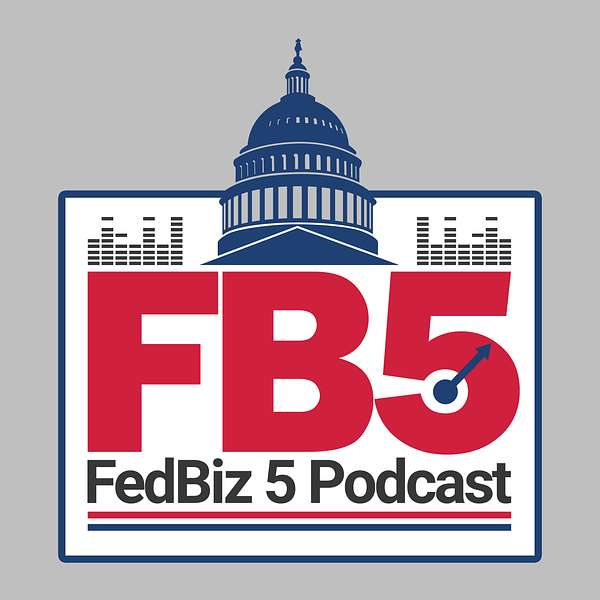
FedBiz'5
FedBiz’5 is your definitive resource for accelerating government sales. FedBiz’5 is a hard-hitting, 5-minute series of free government contracting podcasts designed to help federal contractors find and win more business. Each episode brings new information and strategies from leading experts to help simplify government contracting and provide you a clear path from registration to award. The FedBiz team has over 23 years of experience in government contracting with over $35.7 Billion in client awards.
FedBiz'5
What is the importance of my DSBS? Episode 5
In this episode we will learn about the importance of your DSBS (Dynamic Small Business Search) and its relationship with your SAM registration.
The Small Business Administration (the “SBA”) maintains the DSBS database that government agencies use to find small business contractors for upcoming contracts. Small businesses can also use the DSBS to find other small business to work with or to be found by prime contractors.
The information provided when registering a business in SAM (System for Award Management) is qualified by size standards based on NAICS (North American Industry Classification System) Codes and used to auto-populate a portion of the DSBS to create your business profile.
The SBA’s size standards are numerical thresholds that qualify a small business based on Total Receipts (sales) and/or Number of Employees. The SBA’s Table of Small Business Size Standards lists small business size standards matched to industries defined by their NAICS Code.
The DSBS is important because federal buyers are required to do market research find small business to fulfill federal contracts. This is part of the Federal Acquisition Regulations that buyers are required to use “commercially available market research methods in order to effectively identify the capabilities of small businesses.”
The DSBS is one of the primary platforms that they are going to use to find and select a small business to procure their products or services, especially for any awards that are not posted or not competed.
Registering in SAM makes you eligible for government contracting, but that does not make a business competitive. While the SAM is considered a business and accounting profile, the DSBS is considered the marketing profile. This is how businesses are found through keyword, capability narrative, socio-economic categories, past performance, and industry code searches.
If a business has no DSBS listing or is poorly organized with omission in their DSBS, they may miss out on early-notice opportunities. These include:
- Sole Source Contracts
- Small Business Set-Asides
- Sources Sought Notifications
- “Rule of Two” - Simplified Acquisition Procedures
- Credit Card / Micro-Purchases
For example, if a business does not have the proper industry codes or keywords based on their goods or services and the contracting official or prime contractors uses the DSBS for research, the business does not show up in their search.
The next level of search once this initial research is pulled on industry codes and keywords is the business’ capability narrative. Do they have a capability narrative? Is it descriptive and concise? Then the contracting official or prime contractor may drill down to look for differentiators including socio-economic qualifications and past performance.
An error, an omission, a ‘none given’, an empty field can all be red flags and may disqualify a business before given an opportunity for consideration. Therefore, it is critically important to ensure the DSBS profile is done properly.
FedBiz Access’ fulfillment team takes the time to understand the client’s business and asks questions
Stay Connected:
- Signup for our Once-Monthly "Contractor Chronicle" Newsletter
- Follow Us on Facebook
- Follow Us on LinkedIn